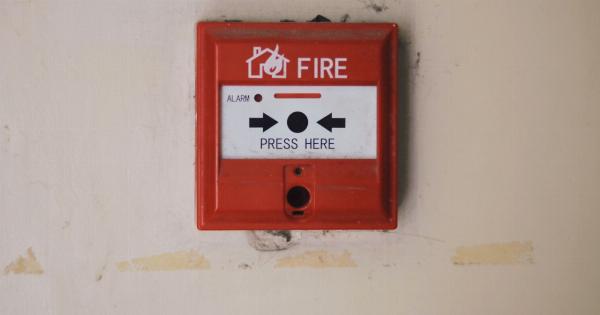The immune system is our body’s defense mechanism against various infections and diseases. The immune system fights against bacteria, viruses, and other harmful microorganisms that can harm our body.
A healthy immune system is necessary to keep us safe and protect us from various diseases. However, sometimes our immune system is not strong enough to fight against these infections, and we can get sick. In this article, we will discuss the signs that your immune system needs a boost.
What is the Immune System?
The immune system is a complex system of organs, tissues, cells, and proteins that work together to protect the body against harmful invaders. The immune system detects and destroys viruses, bacteria, and other microorganisms that can cause illness.
The immune system is made up of the following components:.
Types of Immune System Cells
1. White Blood Cells: White blood cells are also known as leukocytes. They are responsible for fighting infections and diseases. There are two types of white blood cells, phagocytes, and lymphocytes.
Phagocytes engulf and digest harmful organisms, while lymphocytes identify and destroy infected and cancerous cells.
2. T-Cells: T-cells are a type of white blood cell that helps in fighting bacterial and viral infections.
3. B-Cells: B-cells are a type of white blood cell that produces antibodies that help in fighting infections.
Signs That Your Immune System Needs a Boost
1. Frequent Illnesses
If you are frequently getting sick, it could be a sign of a weakened immune system. The immune system is responsible for fighting infections and diseases.
If you are getting sick often, it could mean that your immune system is not strong enough to fight off these infections. If you are experiencing frequent bouts of illnesses like the flu, colds, or other infections, consult your doctor for a checkup.
2. Slow Healing of Wounds
If you have wounds that are taking a longer time than usual to heal or are showing signs of becoming infected, it could be because of a weak immune system. The immune system plays a crucial role in wound healing.
It fights off infections and helps heal the wound. If your wounds are not healing as fast as they should or are showing signs of becoming infected, it’s best to seek medical attention.
3. Chronic Fatigue
If you are experiencing chronic fatigue, which means you are feeling tired and exhausted all the time, it could be due to a weak immune system. The immune system is responsible for filtering out toxins and harmful organisms from the body.
If toxins accumulate in the body, it can cause chronic fatigue. If you are experiencing fatigue, consult your doctor to check if you have an underlying health condition that may be affecting your immune system.
4. Digestive Issues
Problems with digestion could be a sign of an impaired immune system. When the immune system is not functioning properly, it can cause digestive problems like constipation, diarrhea, and stomach pain.
The gut is sometimes called the second brain, and it has a significant impact on your immune health. If you have digestive issues, it’s best to consult a gastroenterologist to prevent further complications.
5. Persistent Infections
If you have a persistent infection that doesn’t go away with treatment, it could be due to a weak immune system. The immune system is responsible for fighting infections and diseases.
If the infection is not going away, it means that your immune system is not strong enough to fight off the infection. If you have a persistent infection, talk to your doctor to get a proper diagnosis and treatment plan.
6. Allergies or Asthma
Allergies or asthma could be a sign of a weak immune system. When your immune system is not working properly, it can attack harmless substances like pollen, dust, and dander, causing allergies. Similarly, a weak immune system can cause asthma attacks.
If you have allergies or asthma, consult a specialist to manage your symptoms and improve your immune system.
7. Joint Pain and Inflammation
If you have joint pain and inflammation, it could be a sign of an autoimmune disorder. Autoimmune disorders occur when the immune system mistakenly attacks healthy cells in the body.
This can cause inflammation and pain in the joints, skin, and other organs. If you have joint pain and inflammation, talk to your doctor to get a proper diagnosis and treatment plan.
8. Skin Issues
Our skin is our body’s first line of defense against harmful invaders. If you have skin issues like rashes, hives, or eczema, it could be due to a weakened immune system.
The immune system plays a critical role in protecting the skin from infections and diseases. If you have skin issues, consult a dermatologist to manage your symptoms and improve your immune system.
9. Stress and Anxiety
If you are experiencing chronic stress and anxiety, it could be due to a weakened immune system. When you are under stress, your body produces a hormone called cortisol, which can suppress your immune system.
This makes you more susceptible to infections and diseases. If you are experiencing stress and anxiety, consult a mental health professional to get the appropriate treatment.
10. Nutrient Deficiency
A poor diet can lead to a nutrient deficiency that can weaken your immune system. Nutrients like vitamin C, vitamin D, zinc, and selenium play a crucial role in maintaining a healthy immune system.
If you are not getting enough of these nutrients, it can weaken your immune system. Consult a nutritionist to ensure that you’re getting the right nutrients to keep your immune system healthy.
Causes of a Weakened Immune System
1. Poor Diet: A poor diet lacking in essential nutrients can weaken the immune system. Diets high in saturated fats, sugar, and processed foods can lead to inflammation, gut dysbiosis, and eventually, a weakened immune system.
2. Lack of Sleep: Lack of sleep can weaken the immune system and disrupt the body’s natural circadian rhythm, reducing the production of immune cells.
3. Chronic Stress: Chronic stress can have a negative impact on the immune system. The hormone cortisol produced during stress can suppress the immune system’s functions, making it more susceptible to infections and diseases.
4. Sedentary Lifestyle: Lack of physical activity can weaken the immune system by affecting the movement of lymphatic fluid, which is essential for immune system function.
Prevention and Treatment Options
To boost your immune system, it is imperative to lead a healthy lifestyle involving a balanced diet, regular exercise, and sufficient sleep.
Additionally, reducing stress levels, staying hydrated, and reducing alcohol and smoking consumption can also help improve your immune system. If you experience any of the above signs, it is best to consult a medical professional to get a proper diagnosis and treatment plan. Treatment options may include medication, proper nutrition, supplements, or immunotherapy.
Conclusion
Your immune system plays a crucial role in maintaining your health and keeping you safe from infections and diseases.
Being aware of the signs that your immune system needs a boost can help you take the necessary steps to keep your immune system healthy. Taking care of your body by eating healthy, getting adequate sleep, and regular exercise are some of the ways to improve your immune system.
By leading a healthy lifestyle and seeking medical attention when necessary, you can help prevent serious illnesses and help your body fight infections when they occur.































